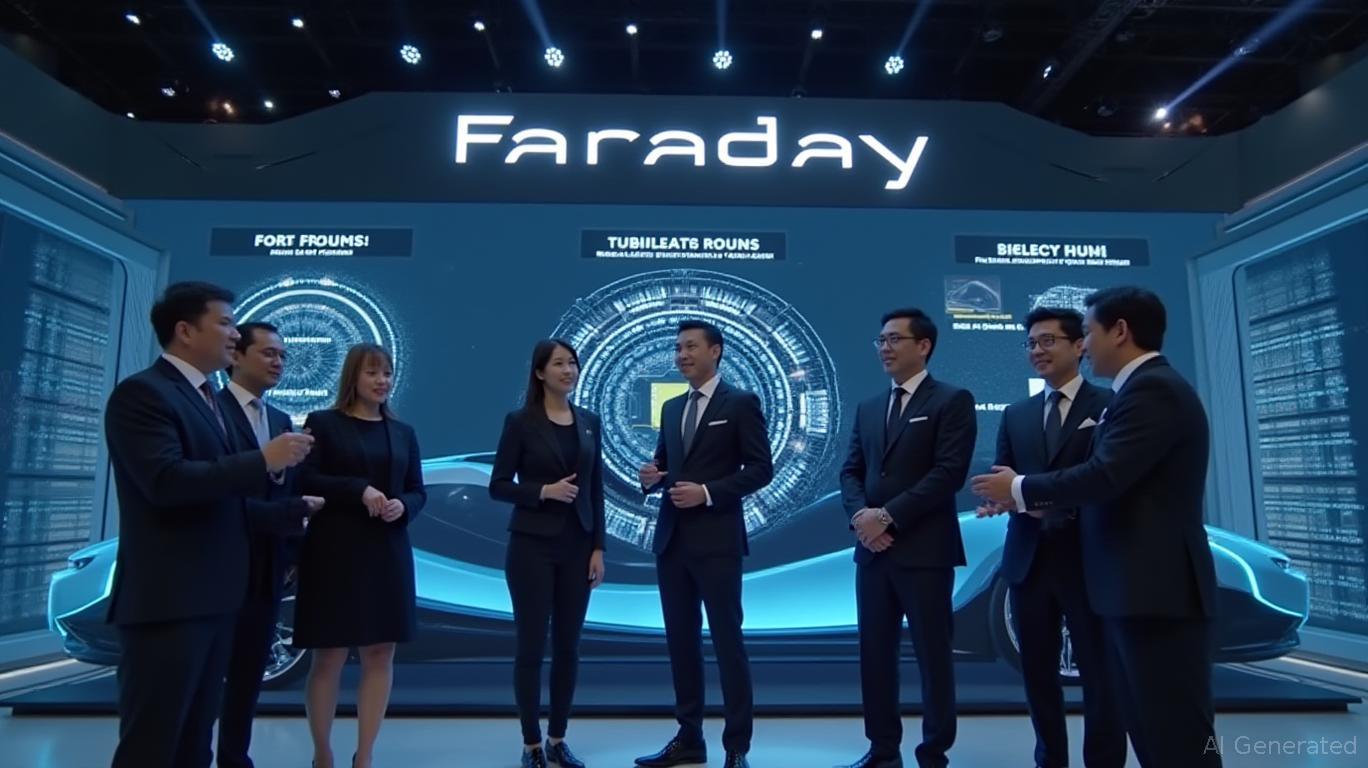NEAR's Reduced Inflation: Sensible Adjustment or Weakening of Governance?
- NEAR Protocol slashed annual token inflation to 2.4% from 5%, bypassing a failed community vote and sparking governance debates. - The October 30 upgrade reduces new token issuance by 60 million yearly, lowers staking yields to 4.5%, and prioritizes curbing dilution. - Critics, including staking firm Chorus One, accuse the core team of undermining decentralized governance, as NEAR’s price fell 8% post-announcement. - The move mirrors strategies by Solana and Polkadot but highlights tensions between econo
NEAR Protocol has reduced its yearly token inflation from 5% to 2.4%, sparking a governance controversy after the change was implemented despite a failed community vote. The update, which took effect on October 30, cuts annual token creation by almost 60 million, decreases staking rewards from 9% to 4.5%, and is intended to limit dilution, according to
Despite an on-chain vote on August 1 that received just 45.06% support—far short of the two-thirds majority needed—the inflation cut was still enacted, the crypto.news article reports. NEAR’s CTO Bowen Wang justified the decision, explaining that validator consensus is the ultimate governance authority. "The upgrade can only go live if 80% of staked tokens approve," Wang stated, highlighting that protocol changes have always depended on validator agreement rather than community ballots. Validators now have a 30-day window to adopt the update, with 80% of staked tokens required for it to take effect, according to

The move has faced strong opposition from validators and staking platforms. Chorus One, a leading staking provider, accused the core team of "compromising the integrity of protocol governance" by disregarding the community’s vote, as reported by Bitget. The company advised validators to postpone the upgrade, warning that such actions could undermine confidence in decentralized governance. Following the announcement, NEAR’s price dropped by 8%, though broader market conditions also played a role. On October 29, the token was valued at $2.32, with a 24-hour trading volume of $190 million, according to the
This reduction in inflation is part of a wider industry movement to balance token economics with long-term viability. Networks such as
This dispute highlights a fundamental issue for blockchain initiatives: balancing technical governance with democratic involvement. NEAR’s core developers assert that validator-led upgrades are crucial for maintaining network reliability, but detractors caution that excluding the community could damage trust, as the crypto.news article points out. The OKX explainer suggests that future governance updates, such as improved voting systems or greater transparency, may be necessary to resolve these issues.
Disclaimer: The content of this article solely reflects the author's opinion and does not represent the platform in any capacity. This article is not intended to serve as a reference for making investment decisions.
You may also like
Nixon Cox's diverse industry experience drives Faraday Future's worldwide growth in Crypto-AI.
- Faraday Future appoints Nixon Cox, grandson of ex-U.S. President Nixon, as global strategic advisor to advance its "EAI + Crypto" dual-strategy, leveraging his capital markets and policy expertise. - The company reports 200+ FX Super One preorders in the Middle East and a 36% stake increase by Vanguard, signaling growing investor confidence and regional market traction. - FF integrates crypto payments for its $84k FX Super One, partnering with RAK Innovation City to build an electric mobility ecosystem a

South Korean Crypto Leaders Stop $8.9 Million Money Laundering Operation Linked to Blacklisted Cambodian Company
- South Korea's top crypto exchanges, including Upbit, suspended transactions with Cambodia's Huione Guarantee amid U.S./UK sanctions over alleged money laundering ties to fraud and cybercrime. - FSS data revealed a 1,400-fold surge in 2024 to $8.9 million in cross-border transfers, with Bithumb reporting 12.4 billion won in dealings with the sanctioned firm. - Regulators intensified AML oversight, requiring exchanges to enhance due diligence after Huione's virtual asset arm was linked to Southeast Asian c

Meta's pursuit of artificial intelligence ignites a debate over the balance between technological progress and the principles of democracy
- Meta's AI-driven social media era sparks debates on authenticity, free speech, and corporate accountability amid synthetic content proliferation. - Vibes app's 20B AI-generated images test blurred human-machine content boundaries, while legal cases highlight free speech vs. workplace accountability tensions. - Corporate greenwashing controversies (Coca-Cola) and political scandals (JD Vance) demonstrate AI's dual role in amplifying both innovation and ethical risks. - Legal challenges emerge from AI-gene

Faraday Future's EAI-Crypto Platform Sees Growing Momentum in the UAE as Crypto Preorders Reach New Milestone
- Faraday Future appoints Nixon Cox, grandson of ex-U.S. President Nixon, as global strategic advisor to advance its "EAI + Crypto" strategy merging electric vehicles with blockchain. - UAE launch of FX Super One secured 200+ preorders, including a crypto transaction using USDT, marking a milestone in crypto-integrated sales. - Partnership with RAK Motors and strong investor confidence, including 36% shareholding increase by Vanguard, highlight growing momentum for the company's dual-track expansion. - Nix
